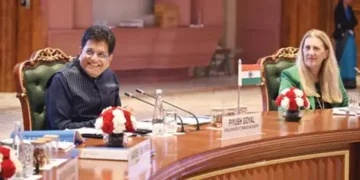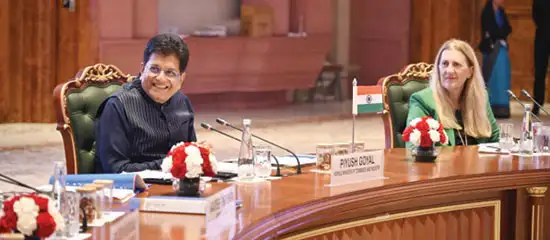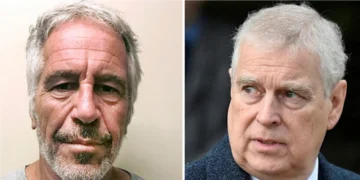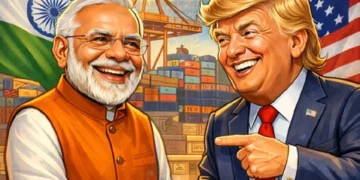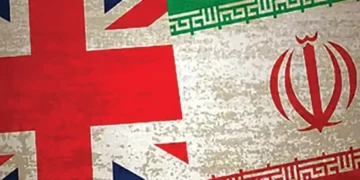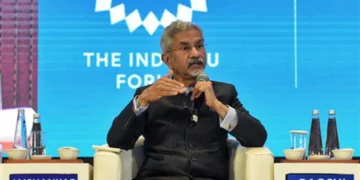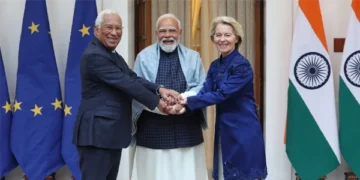Blitz Bureau
NEW DELHI: THE Trade and Economic Partnership Agreement (TEPA) between India and the European Free Trade Association (EFTA) came into effect on October 1, reported IANS.
This agreement will bring $100 billion in investment to India over the next few years and create approximately 1 million direct jobs. This will further strengthen the trade partnership between India and Europe. EFTA includes four countries – Switzerland, Norway, Iceland, and Liechtenstein.
Swiss wines and chocolates are set to become cheaper in India. Under the agreement, India will cut tariffs on 80–85 per cent of goods coming from these countries to zero, while Indian exporters will get duty-free access to 99 per cent of goods in EFTA markets.
After the implementation of this agreement, trade between India and these countries will become easier. Commerce Minister Piyush Goyal said that this is India’s first trade agreement that includes investment commitments. Its aim is to ensure balance of interests and fairness between the partner countries.
Speaking at an event to mark the agreement’s entry into force, Goyal said that while the combined population of the EFTA countries is less than that of Mumbai alone, the partnership is driven by their potential and large-heartedness. He also described the agreement’s entry into force on the auspicious occasion of Vijayadashami and Navami as significant. According to him, this beginning symbolises prosperity, clarity, and the victory of good over evil.
Goyal stated that TEPA is not simply an agreement to reduce tariffs or commit to investment, but rather a stable and reliable framework that boosts investor confidence and conveys stability amid global uncertainties. He explained that the agreement will open up vast opportunities in education, agriculture, industry, technology, and many other sectors.
Highlighting India’s strengths, he said that data costs here are only 3 per cent of those in the US and significantly lower than the global average. He recalled the long-standing association of Swiss companies like ABB and Nestlé with India, saying that India is not only a large market but also a hub for global expansion. Goyal cited the high price-to-earnings ratio of stocks like Nestlé India and ABB India as examples that reflect confidence in India’s economy and its immense future potential.
At the event, he invited industries from EFTA countries to invest in India, saying that India’s environment is transparent, open, and investor-friendly. 100 percent foreign direct investment is permitted in almost all sectors. He emphasized that this agreement symbolizes the commitment of both India and EFTA to sustainable development and that the partnership between the two sides will deepen in the future.
